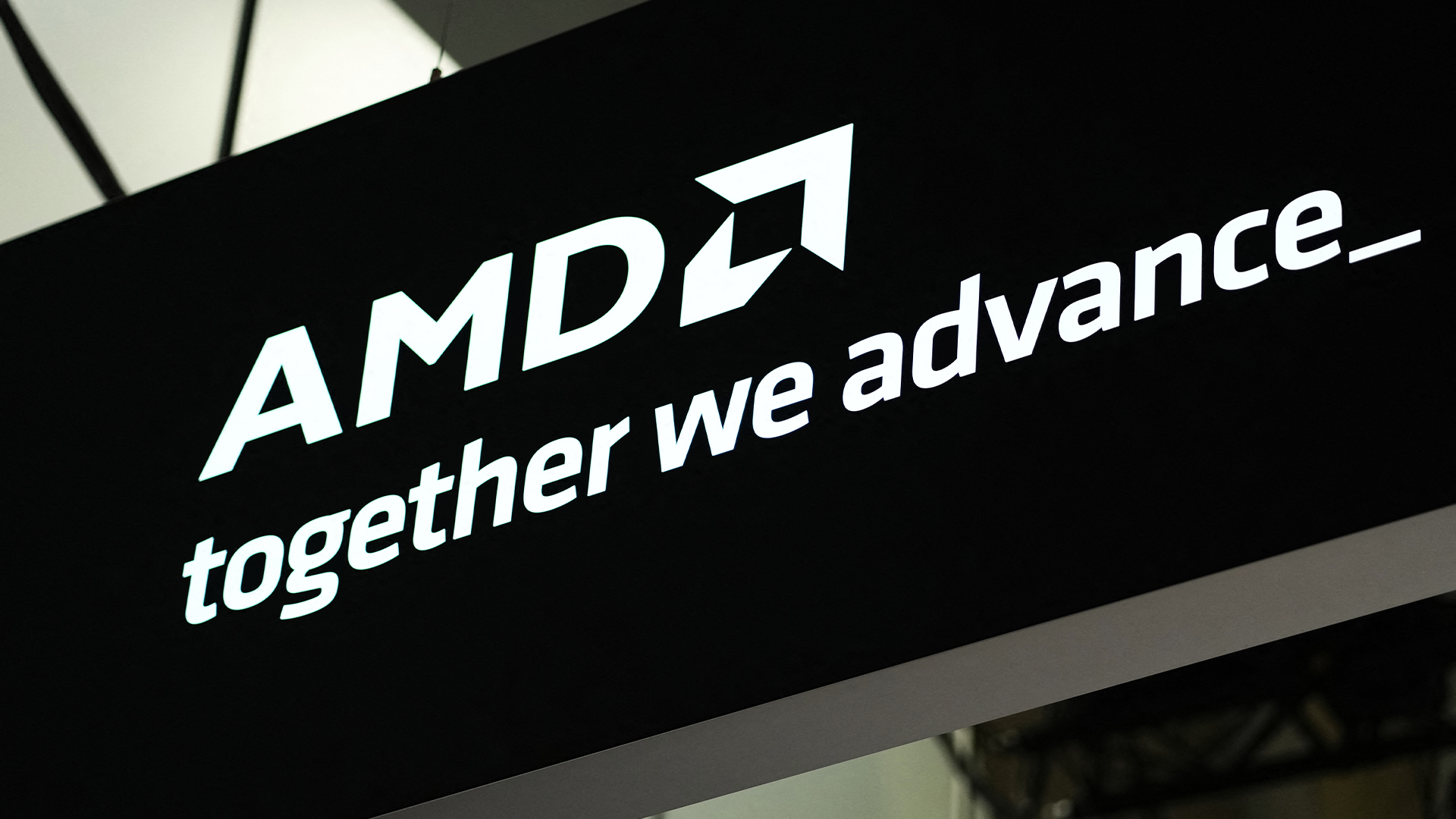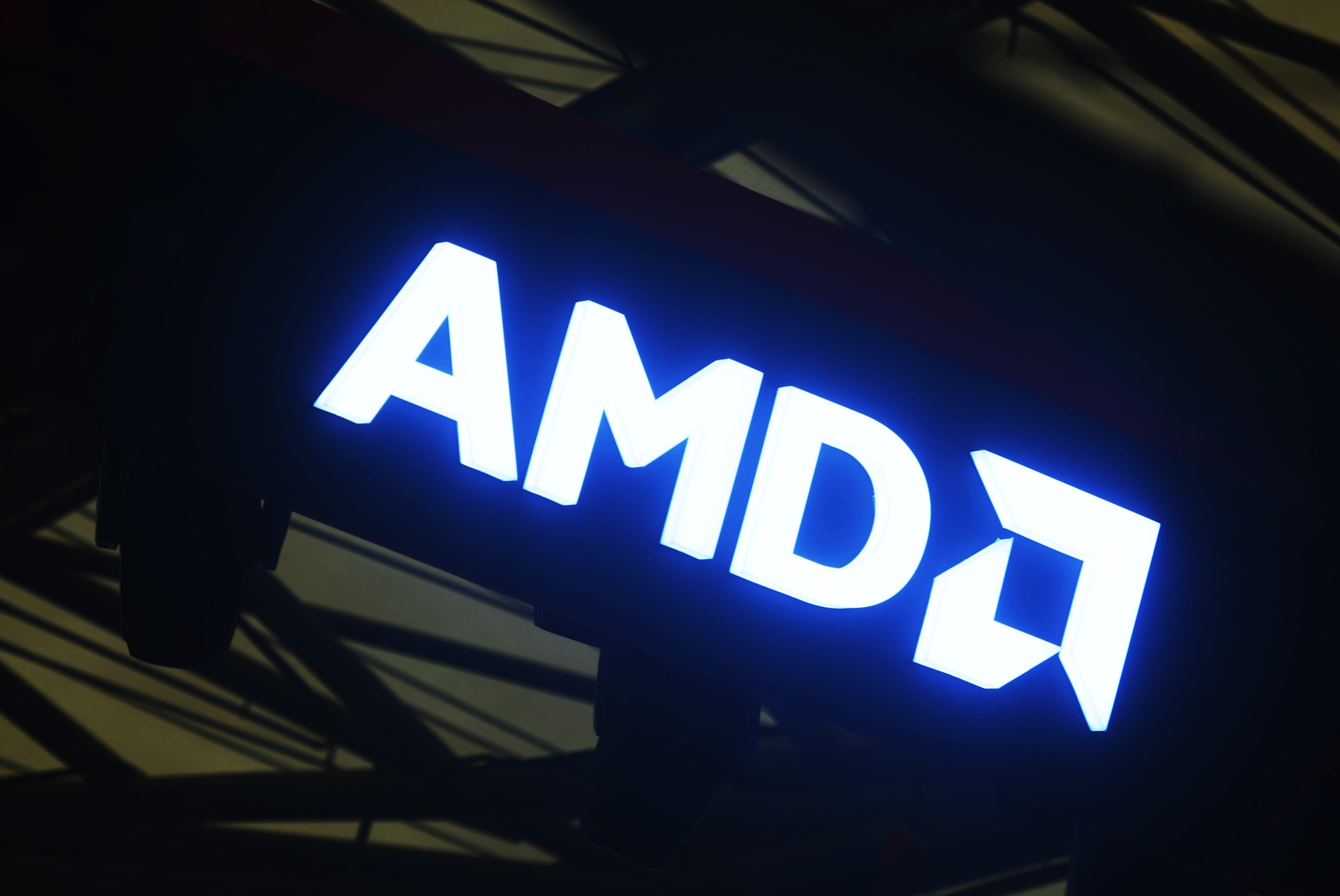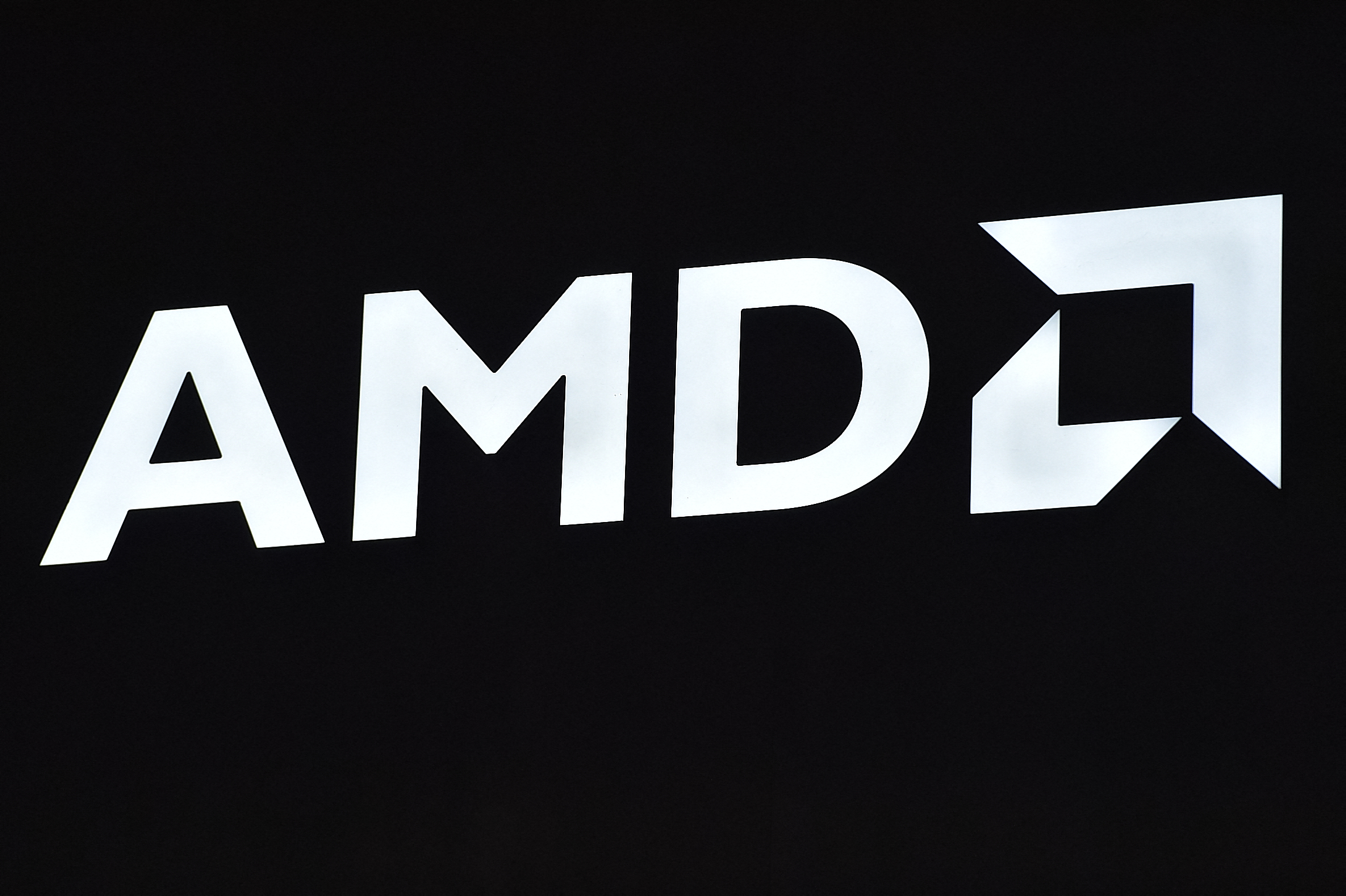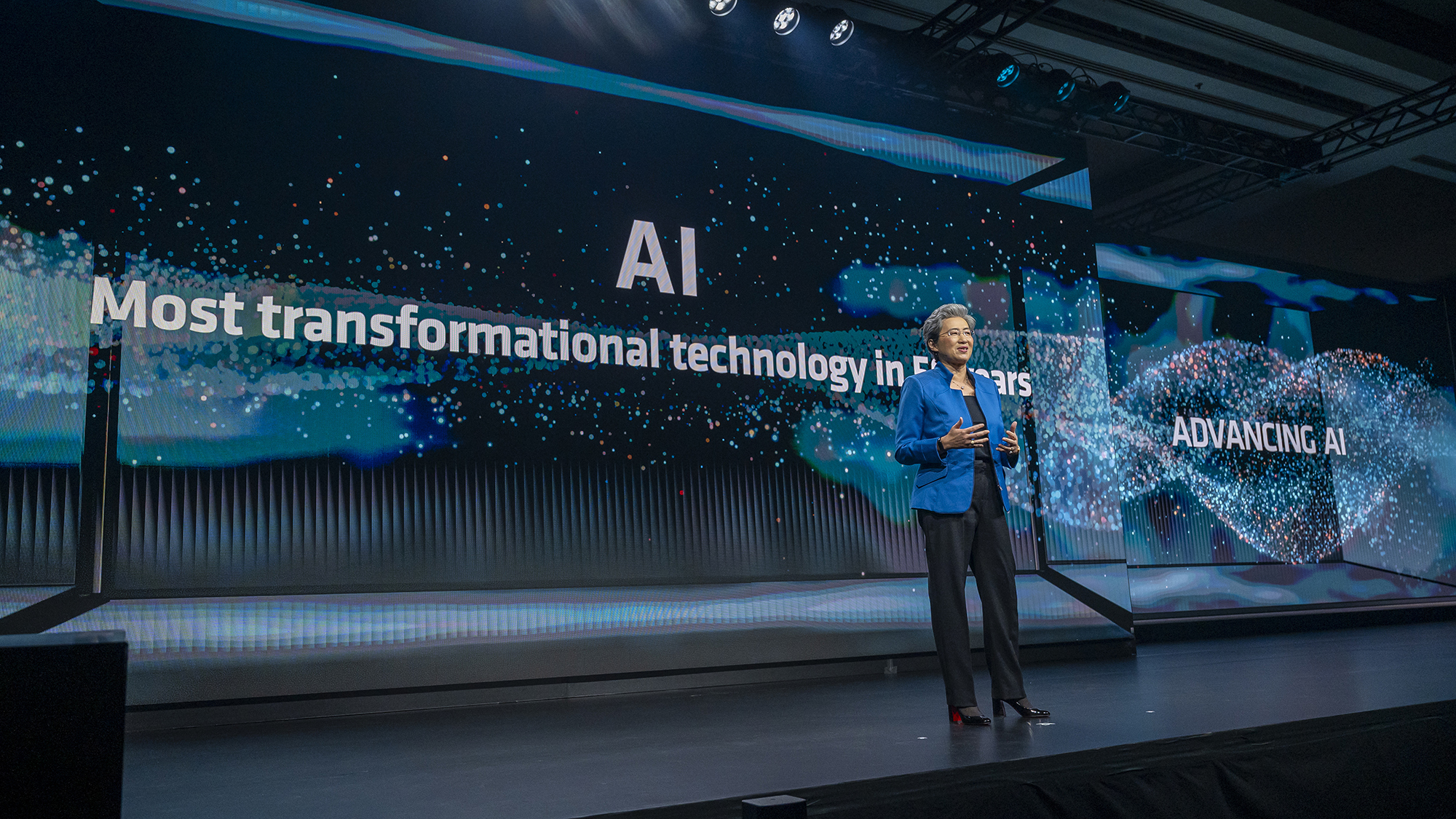AMD has put in the groundwork for a major AI push while the tech industry has fawned over Nvidia
The processor giant will be keen to use its AMD Advancing AI Event in San Francisco to capitalize on recent successes


Advanced Micro Devices (AMD) might rank among the old guard of the global technology industry, but it’s by no means out of ideas or inspiration – and the coming years could see it kick things up a notch.
The widespread public emergence of generative AI in late 2022 flipped the industry on its head and acted as a springboard for success for several major companies, including Microsoft, OpenAI, and most of all Nvidia.
The meteoric rise of Nvidia over the last two years has been nothing short of remarkable. Much of the generative AI ‘boom’ has been underpinned by Nvidia’s graphics processing units (GPUs), resulting in record profits, a surging market cap, and companies scrambling to get their hands on its hardware.
But for long-term rival AMD, Nvidia’s time in the limelight may have provided exactly the breathing room they needed. AMD hasn’t exactly been wallowing in a pit of despair over the flashy headlines or journalists fawning over the founder’s fashion sense. If anything, it’s been priming itself for a battle.
AMD has been a hive of activity so far in 2024 and there is a prevailing sense that it’s gathering momentum. Acquisitions in particular have been a key point of interest here, with the company having invested more than $1 billion between August 2023 and 2024 to expand the AMD AI ecosystem and bolster its software capabilities.
July this year saw the firm acquire Silo AI as part of a $665 million deal. This marked a significant moment for AMD, enabling it to greatly expand its portfolio of end-to-end AI solutions. Just one month later, we saw another marquee deal and a serious signal of intent for the company with the acquisition of ZT Systems for a whopping $4.9 billion.
ZT Systems provides AI and compute infrastructure for a host of major hyperscaler cloud providers. In bringing the company under its umbrella, AMD is taking another major step toward expanding both its AI chips and hardware business.
Get the ITPro daily newsletter
Sign up today and you will receive a free copy of our Future Focus 2025 report - the leading guidance on AI, cybersecurity and other IT challenges as per 700+ senior executives
Commenting on the deal at the time, AMD chair and CEO Lisa Su said the acquisition will enable the company to “significantly strengthen” its data center AI systems and “customer enablement capabilities”.
“This acquisition also builds on the investments we have made to accelerate our AI hardware and software roadmaps," Su added.
Alongside other deals – including AMD’s acquisition of open source AI software firm Nod.ai in October 2023 – Su’s ambitious ‘roadmap’ is forming, as AMD cooks up a diverse range of offerings for customers akin to Nvidia.
AMD’s investments show it building a comprehensive ecosystem focused around its ‘open standards’ approach to AI. So far, this strategy appears to be paying dividends for the company. In its Q2 2024 earnings report, published in late July, we saw concerning results in one segment of the business but with a notable diamond in the rough.
RELATED WHITEPAPER

The firm’s revenue for the second quarter totaled $5.835 billion, marking a 9% year-over-year increase and a 7% boost quarter over quarter. Even as it marked a sizeable drop of 59% in its gaming hardware segment across the quarter – perhaps a discussion for another publication – AMD posted record sales of data center products and markedly increased sales of processors for client PC devices.
Data center hardware sales reached $2.834 billion in Q2 2024, up 115% year over year while its data center business unit recorded $743 million in operating income. That’s 405% higher than in the same quarter last year.
Overall, revenue for AMD’s data center segment surged by 21% compared to the previous quarter, underlining a period of rapid growth for the company.
Underpinning this impressive growth has been a sharp increase in shipments of both AMD Instinct GPUs and strong sales of its 4th generation AMD EPYC processors, both of which are proving highly popular for enterprises ramping up AI development due to their performance and efficiency.
AMD will be keen to capitalize on this performance moving into the closing months of the year and set itself up to challenge in 2025 onward. This week also marks an opportunity to set the stage and highlight this optimist at its Advancing AI event in San Francisco.
ITPro will be live on the ground in San Francisco covering the event, and we can expect to see a bullish stance from Su and AMD as at large as the company prepares for a fresh raft of product and service announcements.

Ross Kelly is ITPro's News & Analysis Editor, responsible for leading the brand's news output and in-depth reporting on the latest stories from across the business technology landscape. Ross was previously a Staff Writer, during which time he developed a keen interest in cyber security, business leadership, and emerging technologies.
He graduated from Edinburgh Napier University in 2016 with a BA (Hons) in Journalism, and joined ITPro in 2022 after four years working in technology conference research.
For news pitches, you can contact Ross at ross.kelly@futurenet.com, or on Twitter and LinkedIn.
-
 Cisco takes aim at AI security at RSAC with ServiceNow partnership
Cisco takes aim at AI security at RSAC with ServiceNow partnershipNews The companies claim Cisco AI Defense and ServiceNow SecOps will help address new challenges raised by AI
By Jane McCallion
-
 Why veterans can excel in data centers – and could help the IT sector address its skill shortages
Why veterans can excel in data centers – and could help the IT sector address its skill shortagesIn-depth Ex-military workers can bring software and hardware to civilian roles
By John Loeppky
-
 What is exascale computing? Exploring the next step in supercomputers
What is exascale computing? Exploring the next step in supercomputers60 years after the birth of the first supercomputers, we are entering a new era
By Jane McCallion
-
 Empowering enterprises with AI: Entering the era of choice
Empowering enterprises with AI: Entering the era of choicewhitepaper How High Performance Computing (HPC) is making great ideas greater, bringing out their boundless potential, and driving innovation forward
By ITPro
-
 AMD’s acquisition spree continues with $665 million deal for Silo AI
AMD’s acquisition spree continues with $665 million deal for Silo AINews The deal will enable AMD to bolster its portfolio of end-to-end AI solutions and drive its ‘open standards’ approach to the technology
By Ross Kelly
-
 AMD retains its position as the partner of choice for the world’s fastest and most efficient HPC deployments
AMD retains its position as the partner of choice for the world’s fastest and most efficient HPC deploymentsSupported content AMD EPYC processors and AMD Instinct accelerators have been used to power a host of new supercomputers globally over the last year
By ITPro
-
 AMD strikes deal to power Microsoft Azure OpenAI service workloads with Instinct MI300X accelerators
AMD strikes deal to power Microsoft Azure OpenAI service workloads with Instinct MI300X acceleratorsSupported content Some of Microsoft’s most critical services, including Teams and Azure, will be underpinned by AMD technology
By ITPro
-
 What do you really need for your AI project?
What do you really need for your AI project?Supported content From GPUs and NPUs to the right amount of server storage, there are many hardware considerations for training AI in-house
By ITPro
-
 AMD reveals MI300 series accelerators for generative AI
AMD reveals MI300 series accelerators for generative AISupported editorial MI300X is the star of the new family of processors with AMD ‘laser-focused’ on data center deployment
By ITPro
-
 AMD celebrates AI advances with partner event
AMD celebrates AI advances with partner eventSupported editorial Advancing AI summit showcased how AMD is working with tech companies to bring its chips to the fore
By ITPro